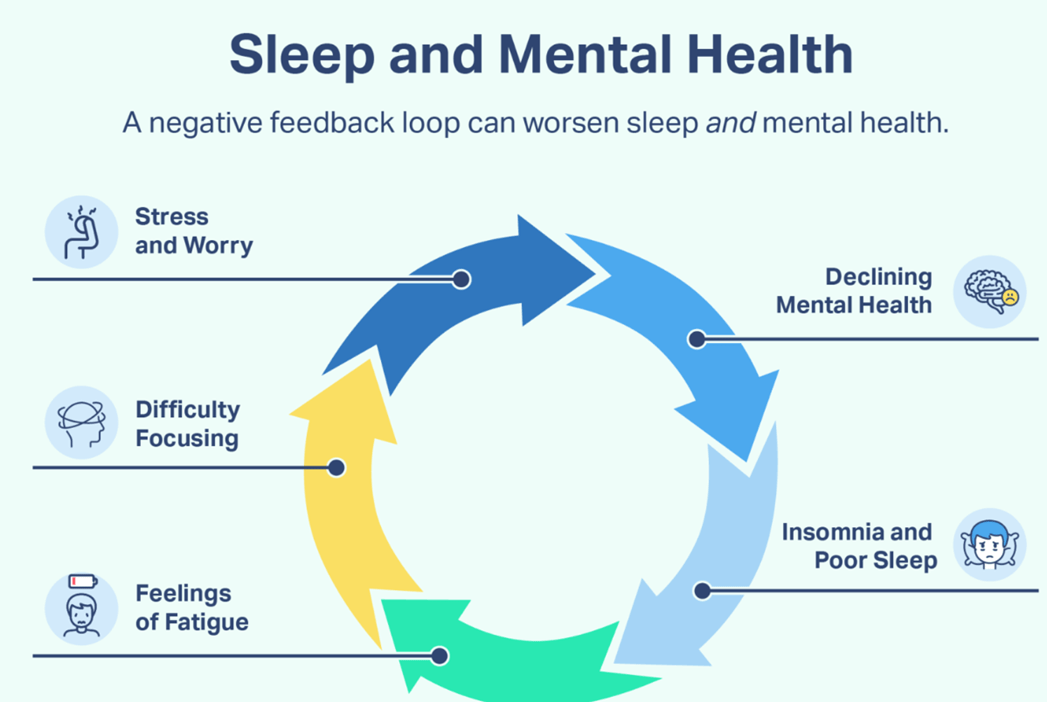How Sleep Affects Your Mental Health and Well-Being
Sleep is often overlooked, but it plays a crucial role in maintaining both our mental and physical health. When we don’t get enough rest, it can have serious consequences on our mood, cognitive function, and overall well-being. In this blog, we’ll explore how sleep affects mental health, why it’s important, and how you can improve your sleep for a healthier mind. Expert Snoring Doctors in Mumbai

The Connection Between Sleep and Mental Health
Sleep and mental health are deeply connected. Poor sleep can contribute to mental health issues, while conditions like anxiety and depression can make it harder to get quality rest. It’s a two-way street: the less you sleep, the worse you feel, and the worse you feel, the harder it is to sleep.
Here’s how sleep directly affects your mental well-being:
1. Sleep Regulates Emotions and Mood
Ever noticed how everything feels worse after a bad night’s sleep? That’s because sleep helps regulate emotions. When you don’t get enough rest, the brain’s emotional center (the amygdala) becomes overactive, making you more likely to feel stressed, irritable, or overwhelmed.
2. Lack of Sleep Increases Stress and Anxiety
Sleep deprivation raises cortisol, the body’s primary stress hormone. High cortisol levels can make you feel anxious, restless, and unable to relax. Over time, chronic sleep deprivation can contribute to anxiety disorders and increase the risk of panic attacks.
3. Poor Sleep Can Lead to Depression
Studies have shown that people with insomnia are 10 times more likely to develop depression compared to those who get enough sleep. Lack of rest affects serotonin and dopamine levels—two neurotransmitters that play a key role in happiness and motivation.
4. Sleep Impacts Cognitive Function
Sleep is essential for memory, focus, and decision-making. When you don’t get enough, your brain struggles to process information, making it harder to concentrate and solve problems. Chronic sleep deprivation has even been linked to an increased risk of Alzheimer’s disease.
5. Sleep Helps the Brain Detoxify
During deep sleep, the brain clears out toxins and waste products that build up throughout the day. One of these is beta-amyloid, a protein associated with Alzheimer’s. Poor sleep may interfere with this cleansing process, increasing the risk of neurodegenerative diseases.
How to Improve Your Sleep for Better Mental Health
1. Stick to a Sleep Schedule
Go to bed and wake up at the same time every day, even on weekends. This helps regulate your body’s internal clock, making it easier to fall and stay asleep.
2. Create a Relaxing Bedtime Routine
Wind down before bed by reading, meditating, or taking a warm bath. Avoid screens at least an hour before bedtime, as blue light from phones and laptops can interfere with melatonin production.
3. Watch What You Eat and Drink
Avoid caffeine, alcohol, and heavy meals close to bedtime. These can disrupt sleep and prevent you from reaching deep, restorative stages of rest.
4. Get Regular Exercise
Physical activity during the day can help you sleep better at night. However, try not to exercise too close to bedtime, as it can be stimulating.
5. Manage Stress and Anxiety
Practicing relaxation techniques like deep breathing, journaling, or mindfulness can help calm your mind and improve sleep quality. If anxiety or depression is severely affecting your sleep, consider speaking to a mental health professional.
Final Thoughts
Sleep isn’t just about feeling rested—it’s a critical part of mental health and overall well-being. When you prioritize good sleep habits, you’re not just improving your nights; you’re setting yourself up for better days filled with clarity, emotional balance, and resilience.
So tonight, give yourself the gift of rest. Your mind will thank you. 😊
